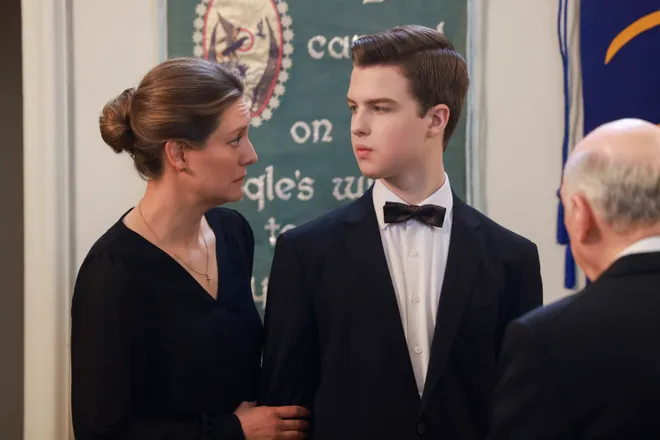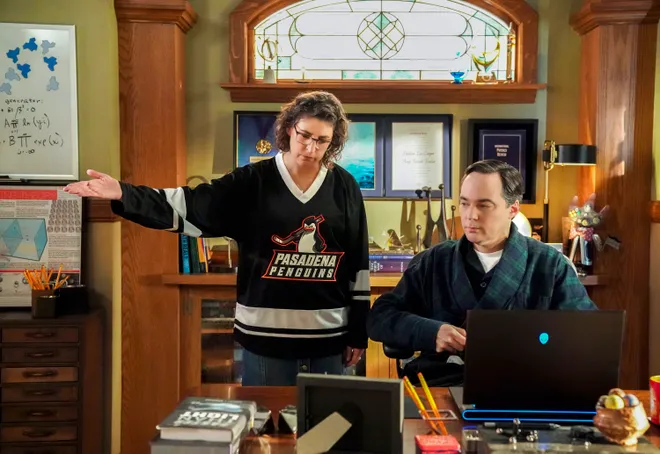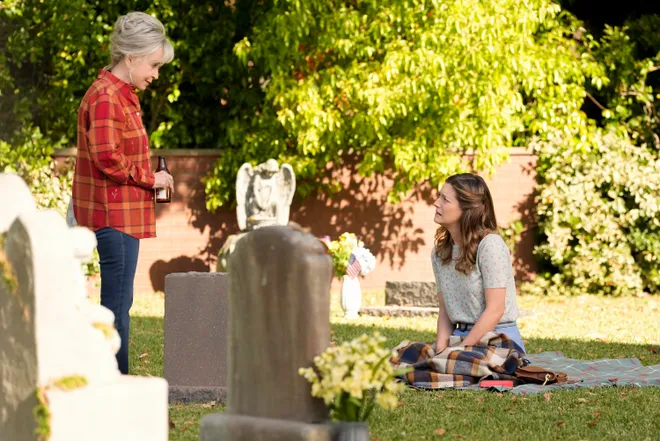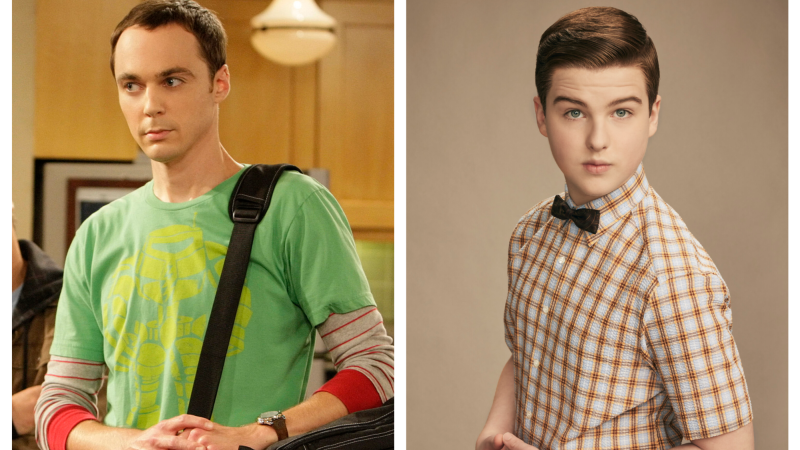What the 'Young Sheldon' finale means: From Jim Parsons' Sheldon return to the last moment
Spoiler alert: This story includes details of the May 16 series finale of CBS' "Young Sheldon."
It's a wrap for "Young Sheldon" after seven seasons following Thursday's emotional two-episode series finale.
The finale featured Jim Parsons and Mayim Bialik making their first appearances on the "Big Bang Theory" spinoff prequel — as adult Sheldon Cooper and his wife (and verbal sparring partner) Amy Farrah Fowler.
The final installment is filled with laughter and a final triumph for 14-year-old Sheldon (Iain Armitage), even as it begins with George Cooper Sr.'s funeral, after the flawed patriarch's devastating death at the end of last week's episode.
Here's what you need to know about the "Young Sheldon" finale (now streaming on Paramount+).
Need a break? Play the USA TODAY Daily Crossword Puzzle.
'Young Sheldon last week:George Cooper's death is flawed father's 'Big Bang' redemption

Sheldon doesn't speak at his father's funeral, but Mary Cooper does
George Sr. (Lance Barber) is put to rest in the finale's first episode with a tear-filled funeral. Mary Cooper (Zoe Perry) starts off humorously eulogizing her husband. But in her grief, Mary angrily laments losing her partner.
"Mary not only feels this emotion of anger, but then is riddled with guilt, because it's not the socially sanctioned emotion that is expected when you lose a loved one," says "Big Bang Theory" and "Young Sheldon" co-creator and executive producer Chuck Lorre.
The grief also pushes Mary deeper into her church "to come to some kind of clarity on this next stage of her life," Lorre says.
George Sr.'s heart attack lays the groundwork in explaining why the future Mary in "Big Bang Theory" (played by Laurie Metcalf, Perry's real-life mom) is much more religious than in "Young Sheldon" and harbors unresolved anger towards her husband.
Crucially, Sheldon passes up the opportunity to speak about his father, immediately fantasizing about the kind words he wished he had said.
On set with Iain ArmitageInside the 'Young Sheldon' finale: Tears, tissues and thanks as Sheldon Cooper leaves home

Jim Parsons' narration is actually Sheldon Cooper's healing memoir
In his "Young Sheldon" appearance, series narrator Parsons reveals his Nobel Prize-winning older self has been writing his memoir in his study, re-examing his childhood years.
"It ties these storylines together, even though there's a time difference between these two worlds," says executive producer and writer Steve Holland. "And maybe what we've been hearing this whole time from the 'Young Sheldon' narrator is adult Sheldon writing his memoirs."
It takes Amy, sneaking a peek at her husband's memoir, to point out that Sheldon hasn't fully appreciated the support his parents gave him as a child. Sheldon was particularly harsh when speaking about George Sr. in "Big Bang."
But "now he's able to see his parents and especially his dad with a new perspective," says Steven Molaro, co-creator and executive producer. "Being Sheldon, he often talks about himself in the memoir, but writing it gives him the opportunity to honor his family and his dad in a way he didn't feel when he was younger."
Sheldon has two children of his own that the physics genius loves but doesn't understand (one perplexingly plays sports and the other wants to be an actress). Parenting further helps Sheldon understand his own parents' plight in raising a young genius obsessed with science in East Texas.
Sheldon, who hadn't eulogized his father, tells Amy that having parents who supported him was "the ultimate gift."
Fun fact: Sheldon's study is filled with Easter eggs, including items from "Big Bang." The couch from the old apartment is visible in one shot, as is the Rubik's Cube tissue holder. Sheldon's beloved trains are set on rails near the ceiling.
"We decided that Amy let him keep some of that stuff at their home, but they had to stay in his office," says Holland.
Armitage's younger Sheldon has also morphed into the older version, dropping the bow tie look and wearing a T-shirt over long-sleeved T-shirts that his older version famously favored on "Big Bang."

It's not the holy spirit, but Sheldon's baptism shows personal growth
Even 27 days after the funeral, grieving Mary insists Sheldon and his sister Missy (Raegan Revord) be baptized. Missy backs out at the last moment, but Sheldon stays at the church even though he finds the ritual to be superstitious nonsense (and fears the baptism pool germs).
Mary asks, "Are you going to leave too? I know you don't believe."
Sheldon responds, "I don't. But I believe in you."
It's a beautiful moment and the line is a callback to the "Young Sheldon" pilot episode, when Missy chides Sheldon for going to church even though he doesn't believe in God. "But I believe in mom," Sheldon responds.
Sheldon shows empathy going through the baptism for his mother's sake. But he does the ritual on his own terms, marching into the church wearing a scuba-diving suit with a life preserver.

How does 'Young Sheldon' end? Sheldon settles in new Caltech home
The ending moments feature Sheldon finally at the California Institute of Technology, as foretold in "Big Bang." Sheldon pauses smiling while admiring the prestigious school's sign.
A professor approaches, played by David Salzberg, a UCLA professor and experimental particle physicist who has been a consultant on both shows since "Big Bang" premiered in 2007.
"We wanted to acknowledge that he's been such a big part of both shows over the years, making our science accurate and making sure we look smart," says Holland. "He was the perfect person to have that last moment with Sheldon."
"Are you lost?" the professor asks.
"No, I'm actually where I'm supposed to be," Sheldon replies happily, in his final line.
Sheldon Cooper, the ultimate fish-out-of-water growing up in East Texas, walks onto the Caltech campus swinging his suitcase. The camera pulls back to show his big new world with the Dire Straits' "Walk of Life" heard on the soundtrack, the same song that opened the series in 2017.
"Sheldon is starting off his life at Caltech, which we eventually get to know through 'Big Bang Theory,'" says Molaro. "We wanted to show that the end is basically his new beginning."
Disclaimer: The copyright of this article belongs to the original author. Reposting this article is solely for the purpose of information dissemination and does not constitute any investment advice. If there is any infringement, please contact us immediately. We will make corrections or deletions as necessary. Thank you.







